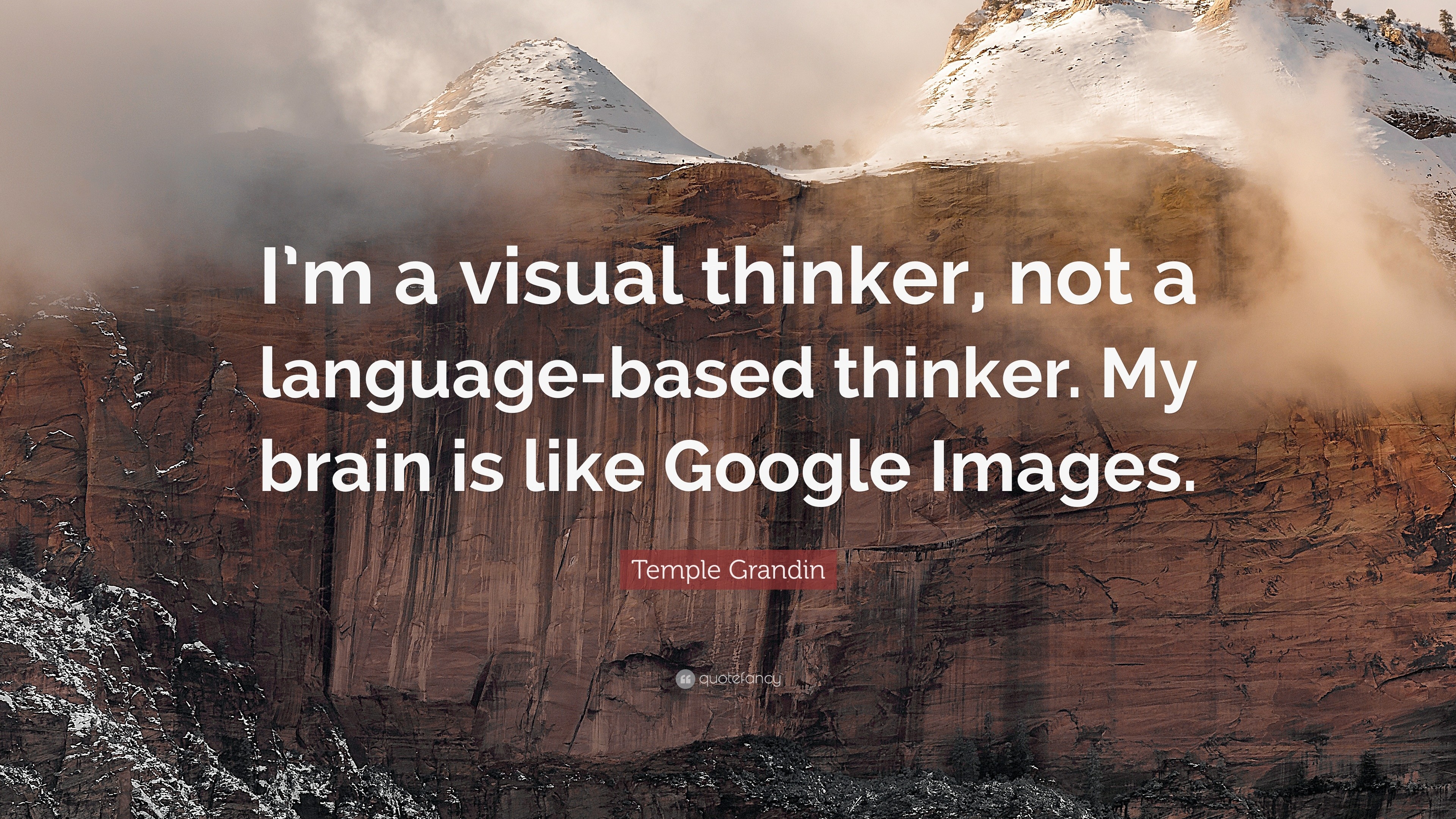

If your question is still not answered, then send me and email by click here. Below is a list of my autism books with recommendations that will most likely answer your specific questions. A lot of those answers will also be in my books. Many questions that parents and teachers ask can often be answered by referring to the Frequently Asked Questions on this site. In a highly competitive world, this important book helps us see, we need every mind on board.Due to the high number of inquiries by email, it is becoming increasingly difficult to personally answer all your questions. Rather than continuing to waste their singular gifts, driving a collective loss in productivity and innovation, Grandin proposes new approaches to educating, parenting, employing, and collaborating with visual thinkers.

She also makes us understand how a world increasingly geared to the verbal tends to sideline visual thinkers, screening them out at school and passing over them in the workplace. Visual thinkers constitute a far greater proportion of the population than previously believed, she reveals, and a more varied one, from the photo-realistic “object visualizers” like Grandin herself, with their intuitive knack for design and problem solving, to the abstract, mathematically inclined “visual spatial” thinkers who excel in pattern recognition and systemic thinking.

With her genius for demystifying science, Grandin draws on cutting-edge research to take us inside visual thinking. Do you have a keen sense of direction, a love of puzzles, the ability to assemble furniture without crying? You are likely a visual thinker. “A powerful and provocative testament to the diverse coalition of minds we’ll need to face the mounting challenges of the twenty-first century.”-Steve SilbermanĪ landmark book that reveals, celebrates, and advocates for the special minds and contributions of visual thinkersĪ quarter of a century after her memoir, Thinking in Pictures, forever changed how the world understood autism, Temple Grandin-“an anthropologist on Mars,” as Oliver Sacks dubbed her-transforms our awareness of the different ways our brains are wired.


 0 kommentar(er)
0 kommentar(er)
